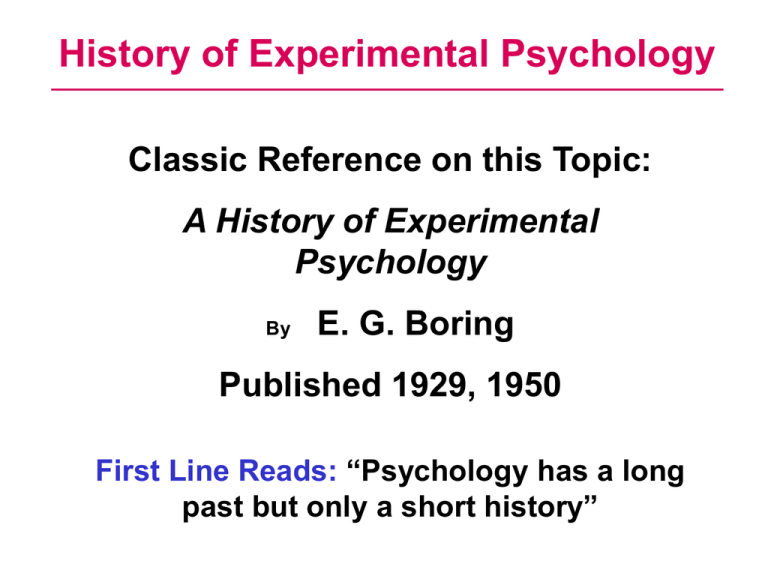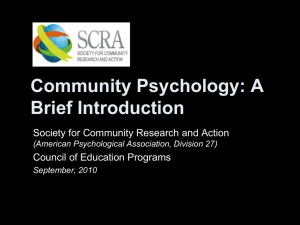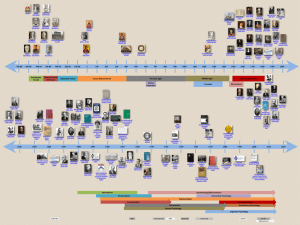History of Psychology - Seton Hall University Pirate Server
advertisement

History of Experimental Psychology Classic Reference on this Topic: A History of Experimental Psychology By E. G. Boring Published 1929, 1950 First Line Reads: “Psychology has a long past but only a short history” Where did Psychology Come From? Psychologists did not originate the problems that came to define the field (Problems of Philosophy) Psychologists did not originate the methodologies that would make the field successful (Methods of the Physiologist and Physicist) An application of the scientific methodologies of the physicist and the physiologist to the problems of philosophy Prehistorical Figures in Psychology Hermann von Helmholtz (1821-1894) Ernst Weber (1795-1878) Gustav Fechner (1801-1887) Wilhelm Wundt (1832-1920) Prehistorical Figures in Psychology Hermann von Helmholtz Measured Speed of Neural Impulse Invented Opthalmascope Trichromatic Theory of Color Vision Prehistorical Figures in Psychology Ernst Weber & Gustav Fechner Psychophysics Study of the interrelationship between physical properties of a stimulus and their perceptual consequences Sensory Thresholds Absolute Threshold Difference Threshold The Discipline of Psychology Begins Wilhelm Wundt (1832-1920) University of Leipzig •“Father of Psychology” •The “First Psychologist” •Taught the first University courses in Psychology •Conferred the first Degrees in the field (PhD). Trained psychologists who spread throughout Europe and North America •Established the first laboratory for the study of psychology in 1879 •First definition of psychology: “psychology is the study of the structure of the mind” •First methodology in psychology: Introspection SCHOOLS OF PSYCHOLOGY PROPONENTS Major method or Emphasis Structuralism (1879) Wilhelm Wundt E. B. Titchener G. Stanley Hall Introspection of Conscious Experience Functionalism (1906) William James E. L. Thorndike Search for survival function of mental processes Behaviorism (1914) John B. Watson Ivan Pavlov Clark Hull B. F. Skinner Objective Observation of Overt Action Gestalt Psychology (1915) Wolfgang Kohler Max Wertheimer Kurt Koffka Wholistic Approach Psychoanalysis (1895) Sigmund Freud Unconscious Determinants of Behavior Cognitive Psychology (1955) Ulrich Neisser George Miller Gordon Bower Inferred Mental Processes American Psychological Association Founded in 1892 with a total of 35 members G. Stanley Hall elected first president Currently there are approximately 250,000 psychologists in America. About 2,000 new psychologists added each year








